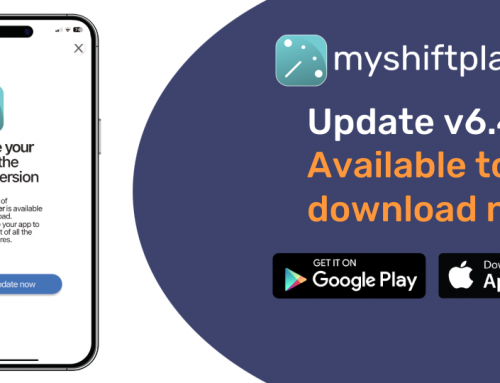Shift work can be tough on both the physical and mental wellbeing of workers. Irregular sleeping patterns, long hours, and high-stress jobs can take a toll on mental health. It is essential for shift workers to have access to resources that can help them manage their mental health.
During Mental Health Awareness Week, people all over the world are being encouraged to take time for their mental health. To make mental health awareness an active part of their daily lives.
Here’s some ideas for mental health resources available for shift work.
National Sleep Foundation
The National Sleep Foundation is a non-profit organisation that focuses on promoting quality sleep. They offer resources and support for those who work irregular hours, including shift workers. The foundation provides information on how to manage sleep schedules, tips for getting better sleep, and strategies for coping with sleep deprivation. They also offer educational programs and research opportunities that focus on sleep health and shift work.
Lack of sleep and irregular sleep schedules can lead to a host of health problems, including fatigue, irritability, and decreased productivity. Shift workers often struggle to get the sleep they need, as their work schedules are often outside the norm. The National Sleep Foundation recognises the importance of sleep and offers valuable resources and support to help shift workers manage their sleep schedules and get the rest they need to stay healthy and productive.
Food Shift
Food Shift is a non-profit organisation that addresses food waste and insecurity in the US. They work with businesses, individuals, and communities to reduce food waste and provide access to healthy food. The organization also offers food assistance programs for shift workers who struggle to access affordable and nutritious meals. Food Shift partners with local charities and food banks to distribute food to those in need.
Shift work can make it difficult to maintain a healthy diet, as many shift workers have limited access to healthy food options. Food Shift recognises the importance of healthy eating and offers valuable food assistance programs to help shift workers access nutritious meals. By partnering with local charities and food banks, they are able to distribute food to those in need and reduce food waste at the same time.
Support from Employers
Employers have a responsibility to provide support for the mental health of their employees. Many companies have implemented mental health initiatives to help their workers manage stress and anxiety. Some of these initiatives include employee assistance programs, mental health first aid training, and access to counseling services.
NHS Mental Health Services (UK)
The National Health Service (NHS) offers a range of mental health services that are available to all UK citizens, including shift workers. The NHS provides free, confidential support for a wide range of mental health issues, including depression, anxiety, and stress-related disorders. They offer services such as talking therapies, cognitive behavioural therapy (CBT), and medication.
Mental Health Charities
There are also several mental health charities that provide support to shift workers. These charities provide a range of services, including counseling, advice and information, and support groups. Some of the charities that specialise in mental health support for shift workers include Mind, Samaritans, and Anxiety UK.
Online Resources
In addition to the support resources mentioned above, shift workers can also access online resources to help manage their mental health. There are several websites and apps available that offer a range of mental health resources. These resources include self-help guides, mindfulness exercises, and mental health assessments. Some of the popular online resources for mental health support include Headspace, Calm, Mind, and SilverCloud.
Occupational Health Services
Shift workers can also access occupational health services provided by their employer. These services can include health assessments, counseling, and advice on managing work-related stress. If you are a shift worker, it is worth checking with your employer to see if they offer occupational health services.
Peer Support
Peer support is another valuable resource for shift workers. Connecting with other shift workers who understand the unique challenges of shift work can provide a sense of camaraderie and support. Some mental health charities, such as Mind, offer peer support groups specifically for shift workers.
Don’t Suffer in Silence
Shift work can be challenging, and it’s important for shift workers to prioritise their mental health. Employers, the Healthcare providers, and mental health charities provide a range of resources and support for shift workers. As well as online resources, occupational health services, and peer support. Whether it’s managing sleep schedules, providing financial assistance, or offering access to healthy food, these organisations are making a significant impact in the lives of shift workers. If you are a shift worker or know someone who is, consider reaching out to one of these charities for support.
By supporting these charities and advocating for better working conditions, we can help create a more equitable and supportive workplace for shift workers erverywhere.
If you’re struggling with your mental health, know that help is available, and you don’t have to suffer in silence






